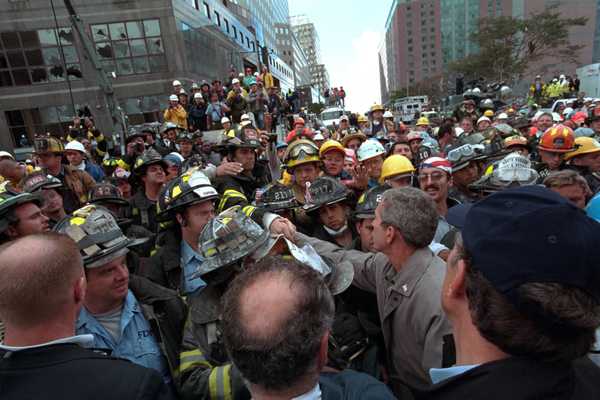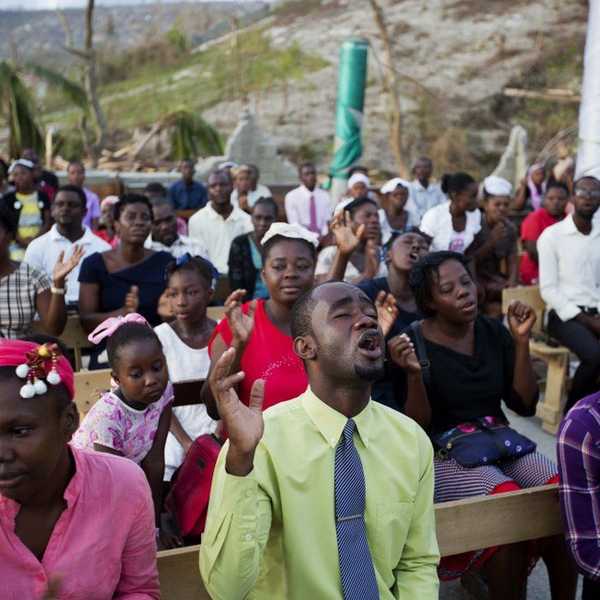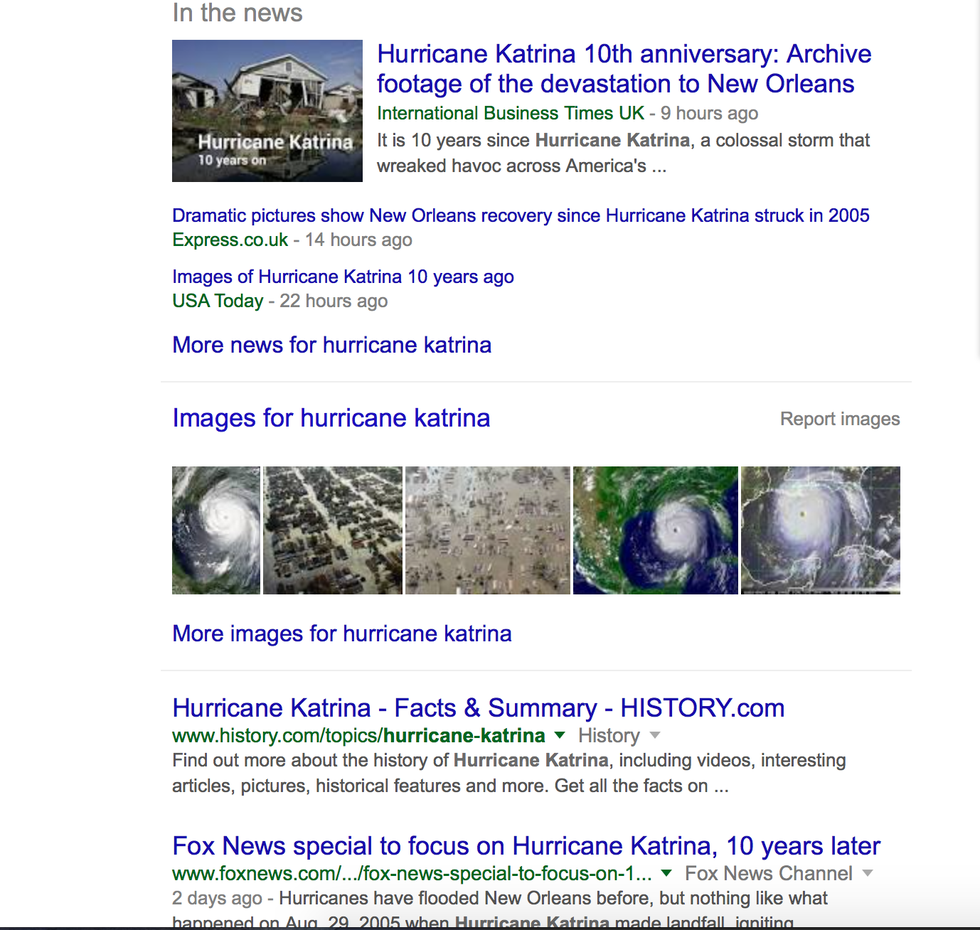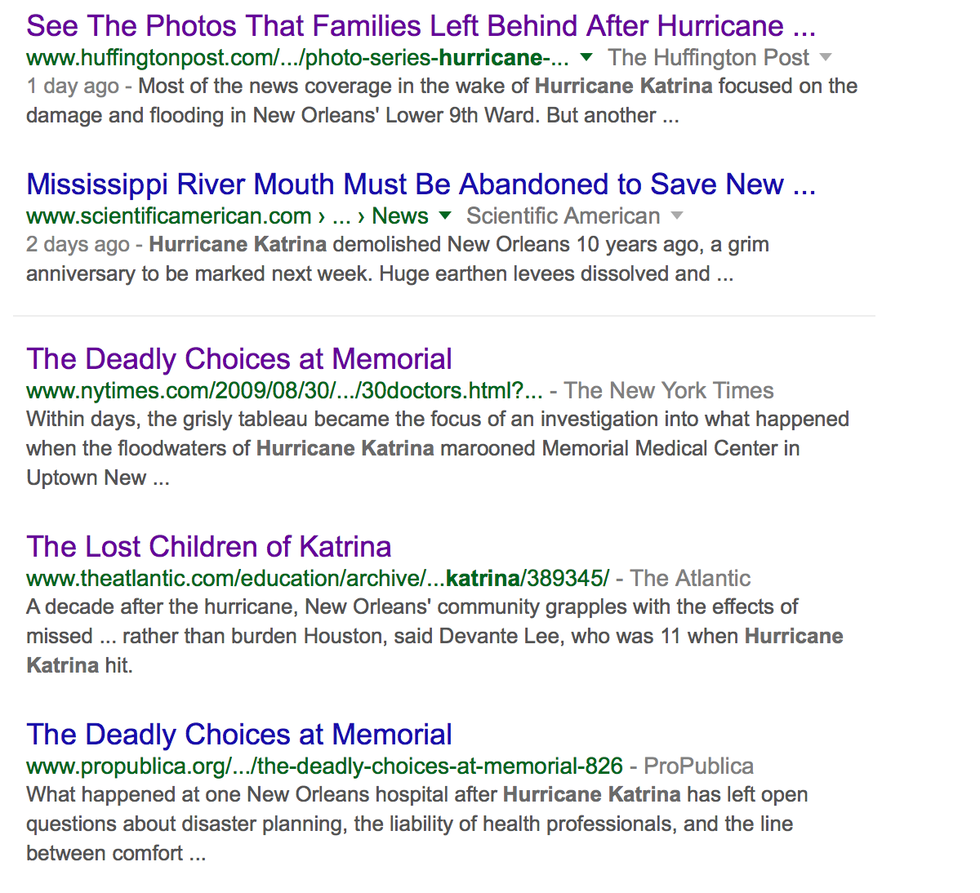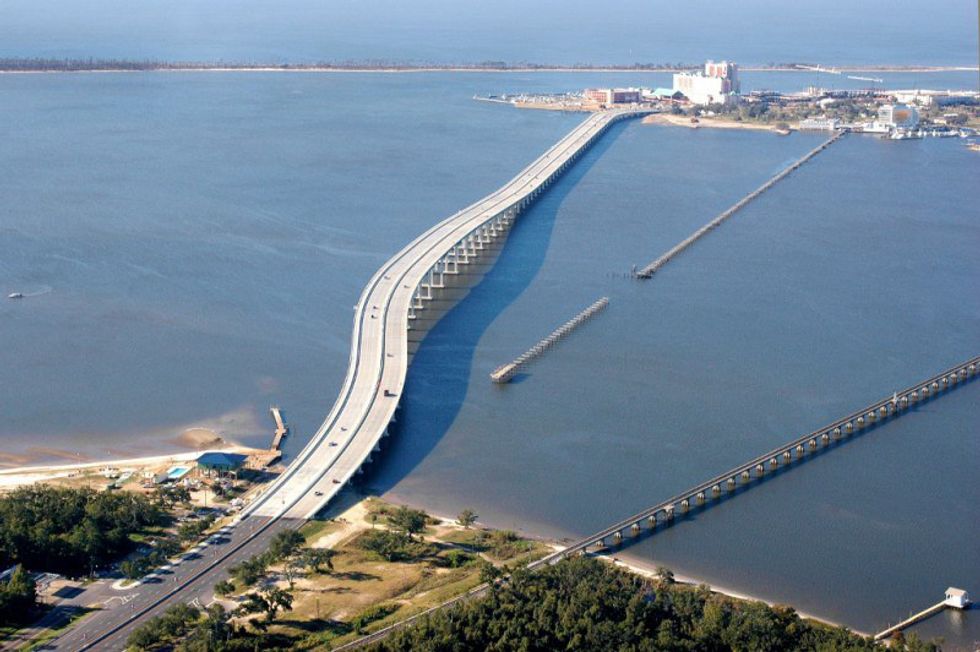On August 29, 2005, life on the Gulf Coast was upended. With strong, destructive winds and a deadly storm surge, Hurricane Katrina made landfall and permanently altered the landscape and lifestyles in Louisiana and Mississippi. This year marks the tenth anniversary of the deadliest and most destructive hurricane in U.S. history, and already news coverage and op-eds are rehashing the horror and reminiscing on the resilience of the people of the affected areas. Most of the articles feature the hurricane’s impact on New Orleans. The President of the United States will be visiting New Orleans. All everyone seems to be talking about is New Orleans. Case in point:
That’s not to say New Orleans wasn’t hit hard. I have friends there who went through an unendurable trauma, their houses flooded and their lives ruined. 1,577 Louisianans were claimed by Katrina’s wrath. The people of New Orleans resurrected their city and rebuilt their lives despite inadequate federal response and having nothing to start over with but perseverance and courage.
Though the public hasn't given it much attention as of late, the Mississippi Gulf Coast was also hit.
As a lifelong Mississippian who was 9 years old when Katrina hit, the anniversary is bringing back a host of memories. Living in Jackson, I sat in my kitchen with my parents, alternating between watching The Weather Channel and CNN broadcast apocalyptic footage of a familiar coastline being battered and staring out the window at the 85-mile-per-hour winds and rain pelting us incessantly. Branches fell, trees toppled, our power went on and off, and eventually my parents shepherded my brother and me to safety as tornado sirens compounded what was already shaping up to be a very, very bad day.
And we were unspeakably lucky.
Hurricane Katrina first hit Florida as a small hurricane on August 25 and entered the Gulf of Mexico, growing into a Category 3 storm by August 27. The waters in the Gulf were unusually warm that year, which fueled Katrina’s explosion into a Category 5 storm. As this massive storm hurtled towards the coast, Louisiana and Mississippi began issuing evacuation orders. In New Orleans, Mayor Ray Nagin issued the city’s first-ever mandatory evacuation notice. Those who had no means to evacuate were to use the Superdome, home of the New Orleans Saints, as a shelter of last resort. In Mississippi, Red Cross shelters and the Jackson Coliseum were made available to the public.
The evacuation orders were justified. Winds of 120-125 miles per hour were recorded at landfall, and some areas of Louisiana and Mississippi were flooded with eight to 10 inches of rain. But the storm surge is the part of hurricanes that wreaks havoc, as it had with Camille in 1969, and with Andrew in Florida in 1992. The surge knocked out the levees, flooding New Orleans and other nearby parishes, and the 28-foot surge in Mississippi obliterated entire coastal counties, like Hancock, Harrison and Jackson County. Further north, towns were plagued with flooding, downed power lines and trees, damage from Category 1-speed winds and tornados.
When Katrina cleared and shelters were emptied, the once-welcome sunlight only harshly illuminated the devastation left behind. It can be quantified in numbers, in casualties, in any numerical manner possible, and this tangible damage can be found online. The real devastation was seeing friends, loved ones, and even complete strangers returning only to find their houses flooded or completely destroyed and their schools obliterated, and seeing classmates and communities displaced in a Category 5 diaspora. For months, the future was clouded with uncertainty.
People didn't know if the Gulf Coast could ever rebound. Houses and livelihoods were swept away. The oil rigs and casinos, two thriving sources of income for the area, were crippled. Families decided to pack up and start over elsewhere. As Mississippi has the lowest per-capita income of any state, people simply didn't have the resources to rebuild. Insurance companies were slow on payouts, and insurance agencies like State Farm denied claims outright. The remnants of Bay St. Louis, Pass Christian and Pascagoula and Gulfport were crammed into FEMA trailers that were later found contaminated with formaldehyde. They stayed there for the better part of five years. Things were bleak.
This June I was in Biloxi and we decided to have dinner in neighboring Ocean Springs, which requires a short hop over the Biloxi Bay Bridge, a drive I'd always loved because of the beautiful views of the Gulf. Katrina wrecked the bridge.
It was rebuilt in 2007 and still stands firm, one of many symbols of our quiet resilience. Ten years ago, Katrina uprooted the Gulf Coast region and damaged lives. But we rebuilt as a community, volunteers swarming in to help pick up the pieces, and we stand just a little bit taller now. While the tenth anniversary should have the appropriate amount of solemn remembrance, we won’t be spending too much time dwelling in the past, but rather looking forward.
To see more images of Katrina’s damage on the Mississippi Gulf Coast, visit http://www.photosfromkatrina.com/default.htm
Images of the devastation in New Orleans are available here: http://www.newsweek.com/photos-10-years-later-hurricane-katrinas-destruction-new-orleans-lingers-364717
